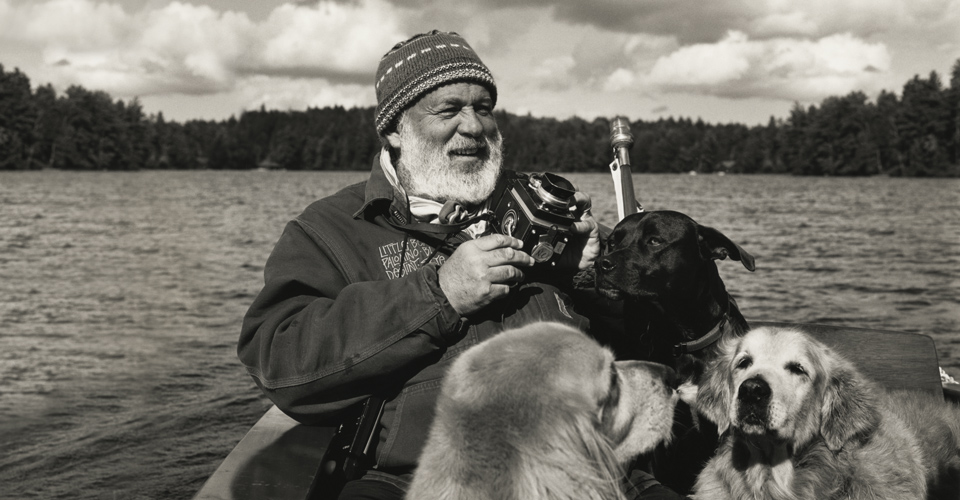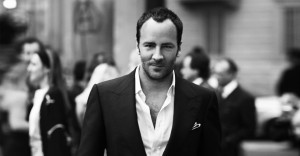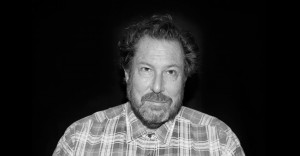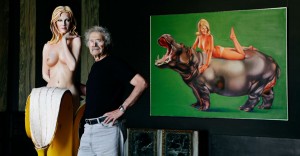Mr. Weber, what’s your favorite picture you have ever taken?
A picture of my mom and dad. It was the last vacation I took with them. I am proud of that picture. I think it is exposed beautifully, I think it is posed beautifully. I think my Dad looked like Paul Newman when he was really young, really handsome. My mom was very beautiful and they were really into each other. They were like young lovers when they were older. So I look at it and I see them as young lovers in that picture. I love that photo the most.
You take pictures, publish books, and direct movies. What do you consider your job description?
I am someone who wakes up in the middle of the night and thinks about the things that I hope for. I end up putting those things in my films and my photographs and my books.
Besides dreaming, what keeps you going?
I try to have a big life. I visit different painters in their studios whose work I like. I maybe do stories on them or photograph them. Sometimes I take a trip. I have been doing a lot of trips around America recently. I’ve been going down south a lot, down in Mobile, I spent a lot of time in New Orleans.
How come?
I like the characters there. I like to meet people on the road. I have also always felt really close to words. I guess if I had to choose something that has really inspired me for my work, it is words and reading. It is weird for me to do this interview today, because I am usually behind the camera. I like to be where you are right now.
Until you meet some of the people I have to work with…
I am sure. I can imagine you taking your story back to a newspaper or magazine and they ask you: “Did you get the dirt?” Those are the moments where you think: “Oh god, I am losing my words, I am losing my work.” It happens all the time.
What’s your solution to that problem?
You have to fight for your work – everybody has to. You have to be able to get knocked down and stand back up. You can’t let it stay on your shoulders. I see a lot of photographers who do their thing and put their soul in it and in the end it is all changed, but their name is still on it. So I do what Dick Avedon told me once and I just go out on each job and take pictures for myself. I’ll photograph trees or if I meet a really handsome guy or girl I’ll take their picture, even if they’re not part of the set. I’m going to try to learn something. Even if a picture is not so good, at least I can go back to bed at night and think: “Wow, did I learn something today?”
How important is the sexual aspect in your body of work?
I’ve always felt like love and affection were really important to me. I like it that people have a flirtation with life. I think that’s kind of important. I didn’t think my work was about sex so much as I thought it was about desire. Desire to be close to somebody, to be intimate. A lot of the time people comment on my pictures that they are too sexy or too sexual, but to me it’s just a photograph of a friend and they trusted me and I liked them. I wasn’t afraid to show myself, my feelings about people.
Can you bring that kind of intimacy to a huge production as well?
I have shootings where I have a hundred people on set. When I work for Abercrombie & Fitch for example, we have all these different divisions on set. We have kids, parents, tailors, hair people, make-up people, and models, but I still try to make it as intimate as possible. The wonderful thing about a job like that is that I am photographing a lot of young people who are very insecure about themselves. It is their first time out in the world in that way and yet they kind of connect to each other. A lot of people on my shootings remain friends for a long time or date or get married or whatever. (Laughs)
Do you have to show some of those young people how to take a photo?
No, I hope that they’ll show me. I’m recording an amazing moment in their life where they’re just starting out and it’s sort of my job to know where they went to school and what musical instrument they played or what sports they played, not for me to teach them how to be a model or how to take a picture. But I never felt like that word model was so important. It is more just a subject, a person, a friend, a family member.
Your pictures always incorporate multiple layers. How do you bring these elements together?
I think it is an instinctual thing. Sometimes when I am about to photograph somebody and I have to think about their body language, I’ll think about one of my dogs laying down on his back and scratching his stomach. I kind of think about the lustfulness that’s in life. I always tell my assistants who are young photographers that they should have a strong life, have a viewpoint.
What do you mean?
Go out in the world and live!
Is that why you don’t put yourself into the spotlight, so you can live your live without having to hide?
People know my name, not my look. The only reason why I am talking about myself now is because my work is very dear to me. I wouldn’t be sitting here right now otherwise. I like the fact that I can travel and go somewhere and nobody thinks of me as just a weird guy with a camera. I don’t like the idea that photographers are such personalities now. It is not so important for me. I’d rather let my work stand for me.
Which is a different approach to some of your very famous colleagues who want be treated like movie stars…
I don’t really think about what other photographers are doing. I do look at photographs in a way of appreciation. I love to have a lot of photographs around me, so I have a big collection. But I don’t reference how other people do pictures or how they live or where they stay.
Which photographers are worth collecting to you?
I have some really beautiful Diane Arbus photos, I have some Edward Weston photographs, a lot of nudes he did. I have a lot of Larry Clark pictures as well. I collected pictures ever since I had 20 bucks in my pocket. I had seen a photograph of Stravinsky that I loved by George Platt Lynes at the Sonnabend gallery. I had no money, but Mrs. Sonnabend really trusted me. I paid it off, it took me about six months, but I finally got it.
Is photography art to you?
I never questioned if it was an art or not. I just questioned its importance to me, whether it was very important to me – my life-source, my source of living. I always had a great time with it. It brought me a lot of happiness, a lot of pain, and a lot of crazy times. I like that about it.
Return to Top

Short Profile
Name: Bruce Weber
DOB: 29 March 1946
Place of Birth: Greensburg, Pennsylvania, USA
Occupation: Photographer





















He is my absolute favourite photographer- thanks for this.
Such a great photographer, thanks for this!!!
So humble… What a legend!
Bruce is one of the best photographers EVER! After seeing the shoots he did for Calvin and Ralph back in the 80’s, that what made me want to be a photographer! I started shooting as many of my “Jock” buddies from Football and the Track team as I could. I went to apply to be one of his assistants when I made it to NYC at last. He wasn’t there but I DID get to meet HIS DOGS!! Amazing!!
A great read for sure.
I have to admit that I had no clue what he looked like prior to seeing the photo above. It doesn’t matter much but portraits of photographers – especially known photographers – are always interested to see. And, after reading this text, I think the photo has captured him accurately.